Migration has been on the EU agenda since the beginning of the 2010s, but Europe has been involved on a different level since the outbreak of the war in Ukraine on 24th February. Thousands of refugees have been arriving to the neighbouring countries’, putting the social system under pressure in an unprecedented way. What is the role of the local governments in handling the situation and how can they cooperate with the civil organisations active in humanitarian aid? We are exploring the above topic with actors from Budapest, Hungary.
Since the outbreak of the war in Ukraine, more than 5 million people have fled their homes looking for security in the neighbouring countries and in the European Union as a whole. Around 470.000 people arrived in Hungary. The civil society, citizens and the authorities have been working on welcoming the people in need since day 0, uniting in the will of support.
“On 24th February when the war started, I was browsing the news for half a day and decided immediately that we need to carry out prompt action. We have organised a donation campaign in Budapest to collect goods for the arriving refugees and transported them to the border. The citizen response was extraordinary: we collected 2 tons of donations in 2 days, it was a heartwarming experience. We were the first responders to the crisis, kind of katalysators.” – explains Zoltán Havasi, leader of the civil organisation Budapest Bike Maffia.
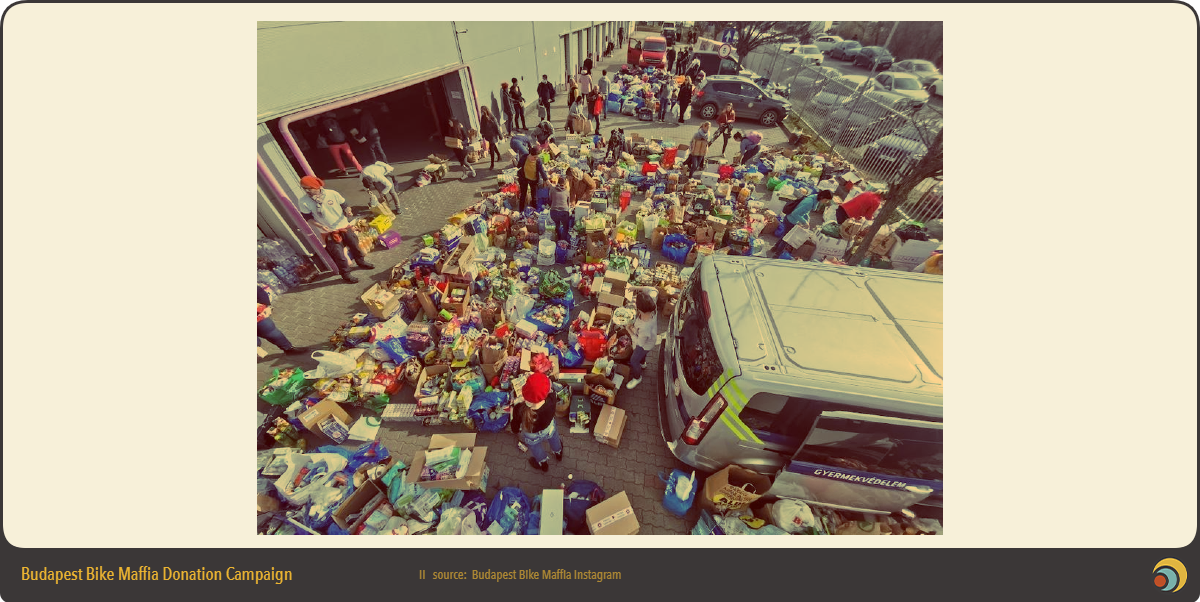
This NGO was among the first to carry out immediate action in response to the events, teaming up with other NGOs active in the field. Zoltán explains to us that it was the small size of the organisation and the short decision making loop that enabled them to act quickly and efficiently. In a few days the Hungarian Red Cross and the Hungarian Reformed Church Aid put their humanitarian actions in operation, they were the main organisations present at the railway stations of Budapest to welcome the people arriving from Ukraine. The organisation of temporary accommodation was initiated by Migration Aid organisation, completed with a continuous flow of citizens who stood outside the station offering their homes.
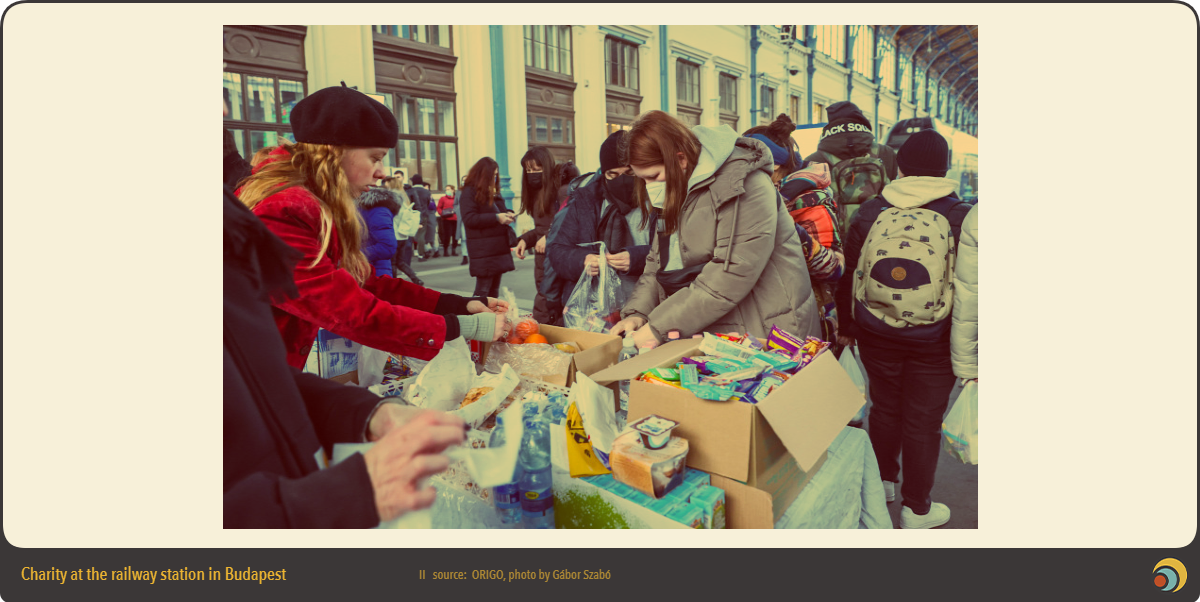
It was the Budapest Municipality which contacted Budapest Bike Maffia and the other NGOs two days after the outbreak of the war, a considerably rapid response from the local government – as we learn from Zoltán, who says that communication with the Budapest’s Operational Body responsible for the migration aid has been going flawlessly ever since. Ambrus Kiss, deputy mayor of Budapest was appointed as head of the municipality’s operational task force on the Ukrainian crisis, tells us about the capital’s responses: “The tension of a possible armed conflict was evident even in the days preceding the outbreak of the war, I remember we gathered on 22nd February to start preparing action plans for an expected immigration flow.” – explains Ambrus. “Thus we had a plan 0.1 by 24th February with the inventory of the accommodations we could provide, providing shelter immediately with a starting capacity of 150-200 places.” Ambrus explains that in the first 96 hours, only -budapest Municipality and civil organisations were involved in the crisis handling. The National Disaster Management Authority took over the leadership on 28th February, gradually building the system which has been in operation since then.
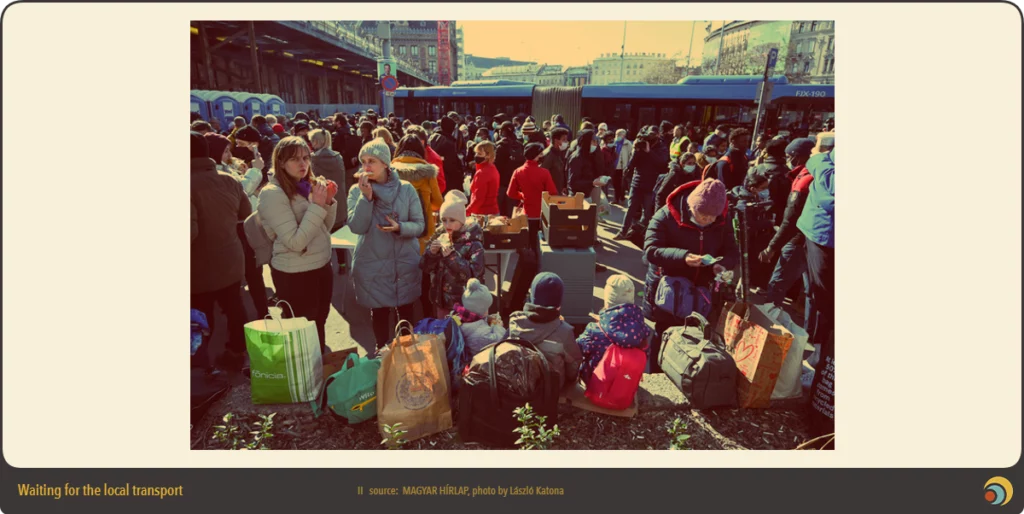
“The asylum care provided by Budapest contains five main pillars, equally important for the efficient service. They are the following: short-term accommodation, long-term accommodation, meals, logistics and information and communication.” explains Ambrus. For smaller urban families and foreign students carrying out studies in Ukraine, Hungary is only a transit; their needs are easier to be met with short-term accommodation and meals. Families arriving to reunite with their members working in Hungary need long-term accommodation, another group is the Hungarian Roma families arriving and planning to settle down – as there are many people of Hungarian ethnicity in Ukraine. These people need to be provided with administrative and medical assistance, inclusion in education and the labour market – which presents a challenge for the social system.
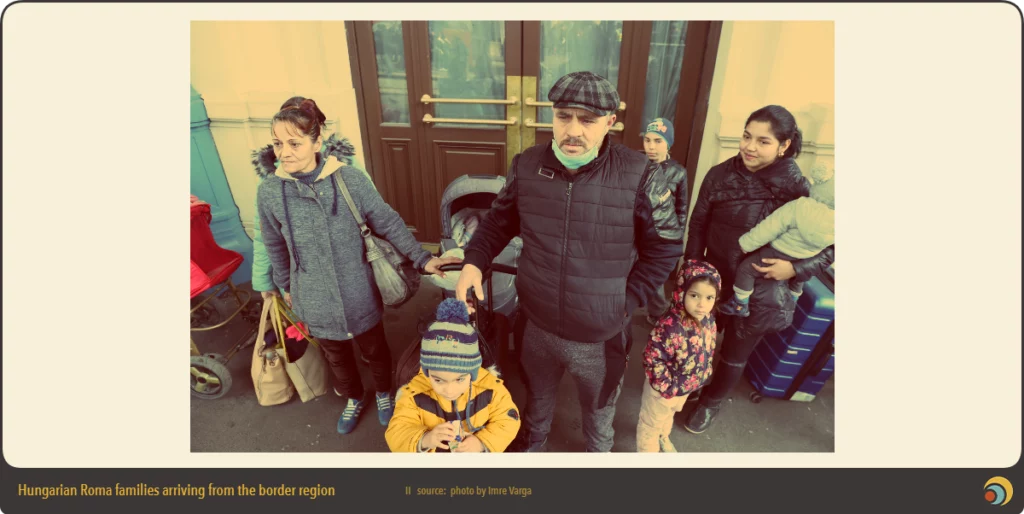
Budapest Municipality’s information and communication service refers greatly to the coordination work carried out with civil organisations, charity and international organisations and the national authorities. Weekly meetings are held to manage the work division among the different actors and to share information. Budapest also helps with logistics: they transport the refugees between the railway stations and the central refugee transit space arranged by the Hungarian government. The state set up a centre providing assistance with all the above from 21st March, people arriving from Ukraine are directly transported there, the civil actors working independently previously are also integrated in this system.
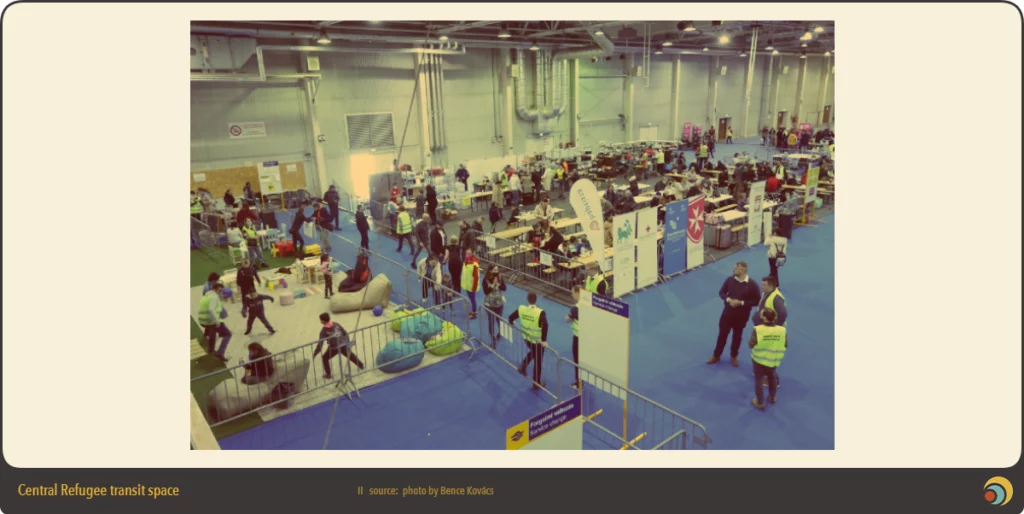
“In an ideal world I would expect more efficient coordination among the civil actors, charity organisations and the authorities on local and national level as well, to be able to respond timely and effectively to crisis situations of this type.” highlights Zoltán from the Budapest Bike Maffia when asking him about the pitfalls of the last weeks. He advises that large charity organisations should team up with smaller civil organisations, who can react rapidly to situations and can communicate with the public in an appealing way. He adds that the success of their donation campaign was effective communication, which is a strength many small civil organisations could add to the humanitarian aid chain.
The European Union also reacted rapidly to the crisis – the Temporary Protection Directive was activated on 1st March as response to the Russian aggression against Ukraine, the first time since its adoption in 2001 as response to the conflict in former Yugoslavia. According to this scheme, Ukrainian nationals and non-Ukrainian nationals with a permanent residency permit can enjoy a temporary protection for up to 3 years in their chosen country in the EU, accessing harmonised rights: residency rights, access to the labour market, access to housing, social welfare assistance and medical assistance. Countries accepting the refugees are also assisted: the European Parliament approved the Cohesion’s Action for Refugees in Europe (Care) on 24th March, an action to redirect available funds to EU countries sheltering people fleeing from the Russian aggression. This could include an additional €10 billion from React-EU, a fund created to act as a bridge between Covid emergency measures and cohesion funds. As of mid-April, on top of the 470.000 people in Hungary, appr. 3 million people arrived in Poland, 760.000 people to Romania and 340.000 to Slovakia in the hope of peace and stability – which hopefully returns to the continent soon.
